Are you navigating the complex world of military law and in need of guidance? Whether you're facing legal challenges or simply seeking to understand your rights, you're not alone in this journey. This article will unpack vital information that can help you advocate for yourself or seek proper legal assistance effectively. Join us as we delve into essential tips and resources tailored specifically for those in the military community!
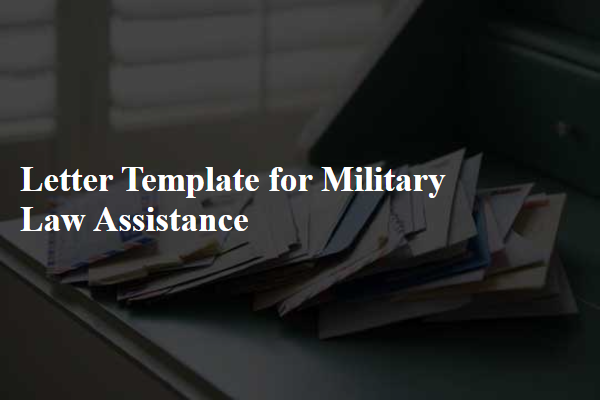
Clear Identification of Situation
Military personnel often encounter complex legal situations requiring specific guidance and support. Clear identification of the situation involves detailing the exact nature of the legal issue, such as a court-martial for an alleged violation of the Uniform Code of Military Justice (UCMJ) or a dispute regarding military benefits. Specific facts, like dates, locations (e.g., Fort Bragg, North Carolina), and relevant military units (e.g., 82nd Airborne Division), should be documented. Additionally, any previous actions taken, such as written statements or informal hearings, will provide necessary context for legal advisors. Understanding the implications of military regulations, such as Article 15 non-judicial punishment or the rights during an investigative process, is crucial for effective assistance.
Detailed Account of Relevant Events
When soldiers experience legal issues, the implications can be profound. Legal matters often arise due to military operations, training exercises, deployment, or adherence to the Uniform Code of Military Justice (UCMJ). For instance, violations may occur during combat zones, where rules of engagement dictate soldier actions. It is essential to document every pertinent detail within these contexts, such as dates of incidents, names of involved personnel, and specific locations, such as bases like Fort Bragg or Camp Pendleton, to provide a thorough account of circumstances. Additionally, any disciplinary actions taken, such as Article 15 proceedings or court-martial setups, should be outlined clearly. Collecting witness statements and relevant military records can strengthen the overall case, ensuring a comprehensive understanding of the situation and legal rights upheld.
Specific Legal Concerns
Military personnel often face unique legal challenges that require specialized assistance. Issues such as deployment rights, the Uniform Code of Military Justice (UCMJ), and benefits under the Servicemembers Civil Relief Act (SCRA) often arise. For instance, service members must navigate complex regulations regarding family law and child custody arrangements arising from extended deployments, which may last several months. Furthermore, legal concerns can stem from disciplinary actions, where understanding the implications of a court-martial versus non-judicial punishment is crucial. Additionally, access to benefits such as the Post-9/11 GI Bill for educational opportunities can present hurdles, especially when transferring benefits to family members. Each legal challenge necessitates expert advice to ensure service members are fully informed of their rights and protections under military law.
Formal Tone and Structure
Military law assistance encompasses a range of legal issues affecting service members and veterans, including the Uniform Code of Military Justice (UCMJ), administrative actions, and court-martial proceedings. Legal counsel may address matters such as Non-Judicial Punishment (NJP) under Article 15, which involves disciplinary actions without a court-martial, often affecting service members' career trajectories and personal records. Additionally, issues under the Servicemembers Civil Relief Act (SCRA) provide protections regarding civil obligations, such as mortgage foreclosures and rental agreements, to prevent undue hardship. It is crucial for service members seeking assistance to be aware of their rights and the legal resources available at military installations, such as Judge Advocate General (JAG) offices, where experienced legal professionals provide guidance tailored to specific military circumstances and regulations.
Contact Information and Availability
Military legal assistance often requires precise contact information and clear availability options for service members seeking support. Vital details include the attorney's full name, rank, and contact phone number, such as a direct line or email address. Office hours should be specified, highlighting any adjustments for holidays or duty stations. For urgent inquiries, providing an alternative contact during non-business hours is crucial, enhancing accessibility for those in need of immediate legal guidance. Furthermore, including the physical address of the legal assistance office, often located within military installations like Fort Bragg or Naval Station Norfolk, helps service members locate resources efficiently.
Letter Template For Military Law Assistance Samples
Letter template of notification for military disciplinary action assistance
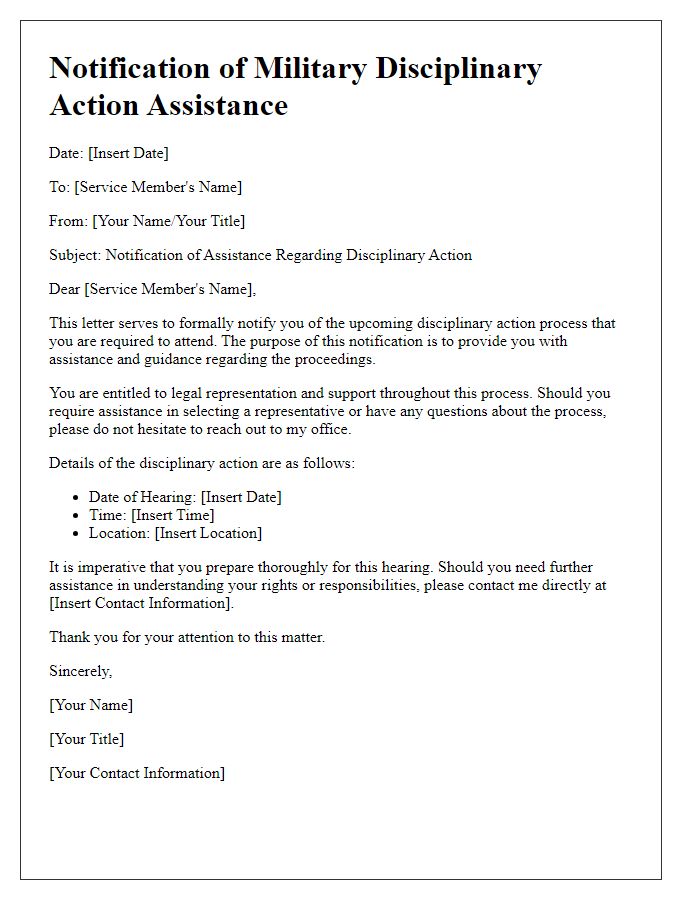

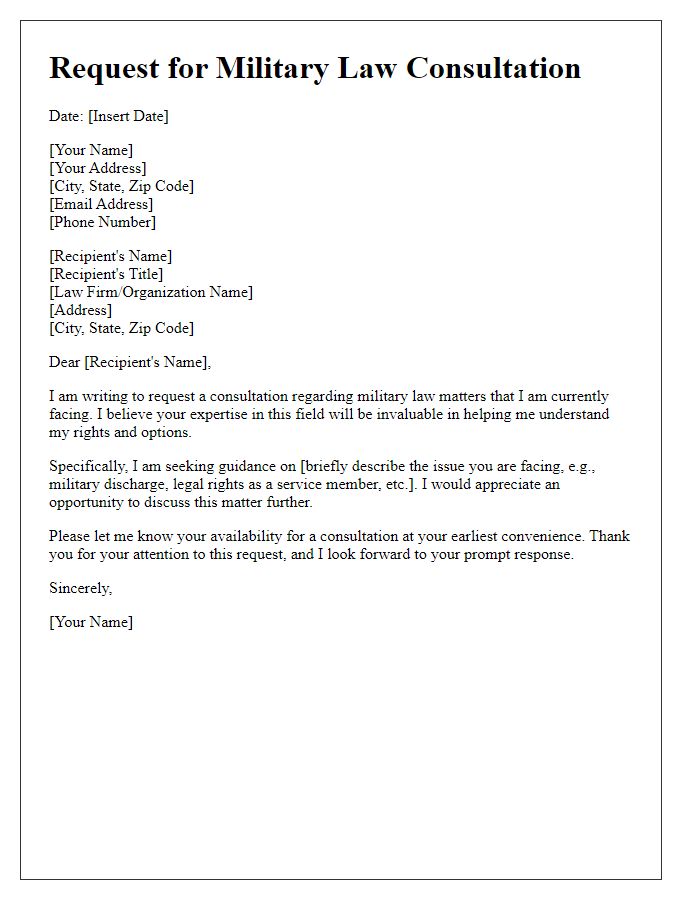
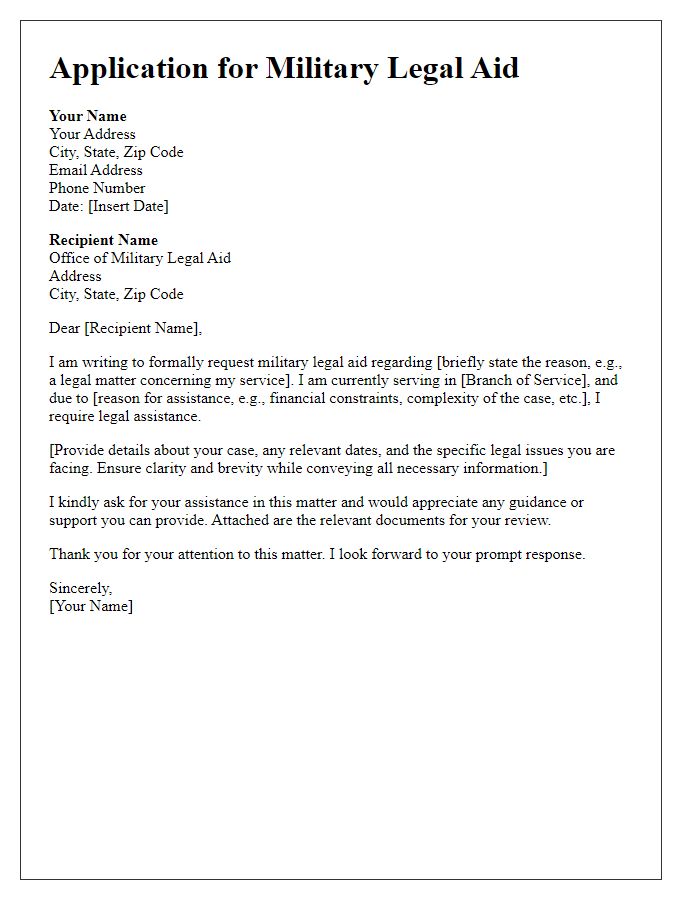
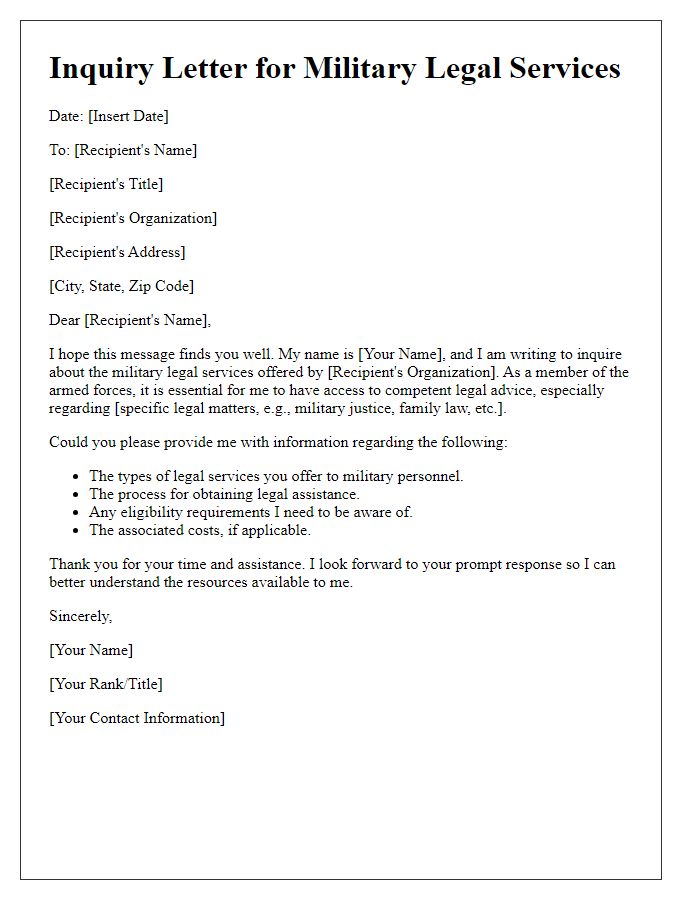
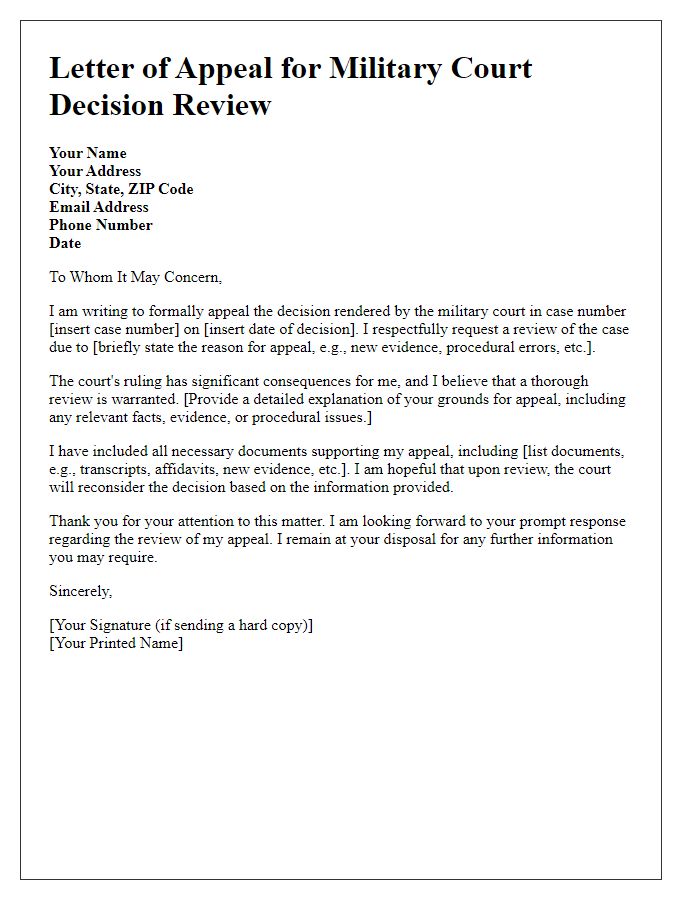
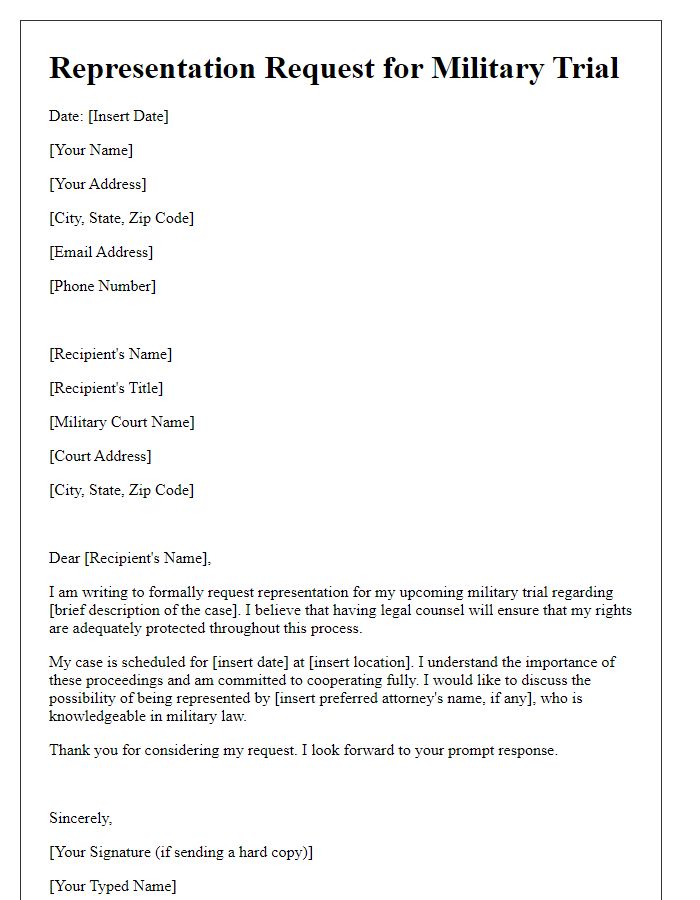
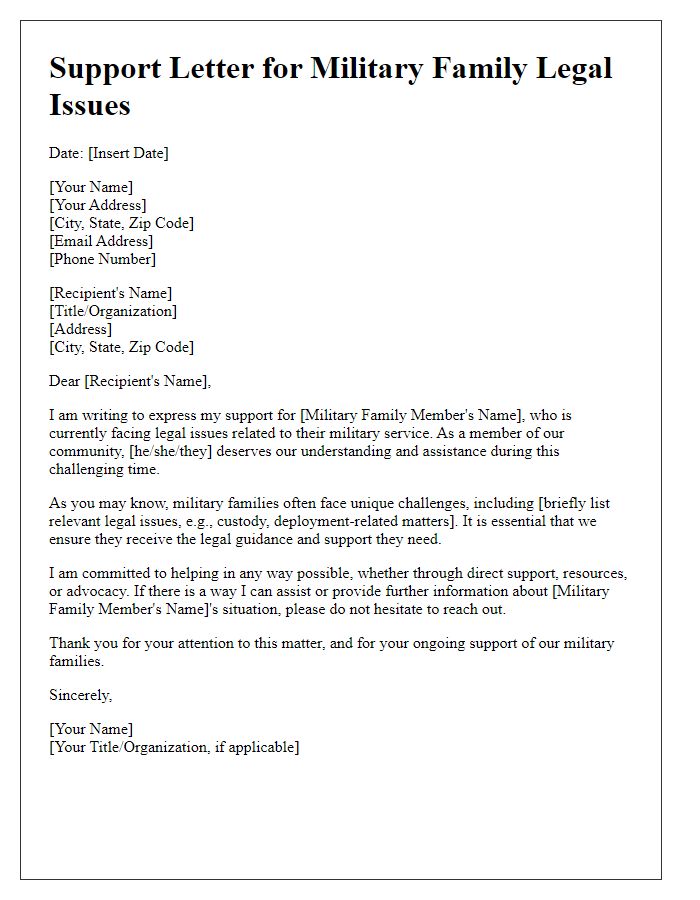
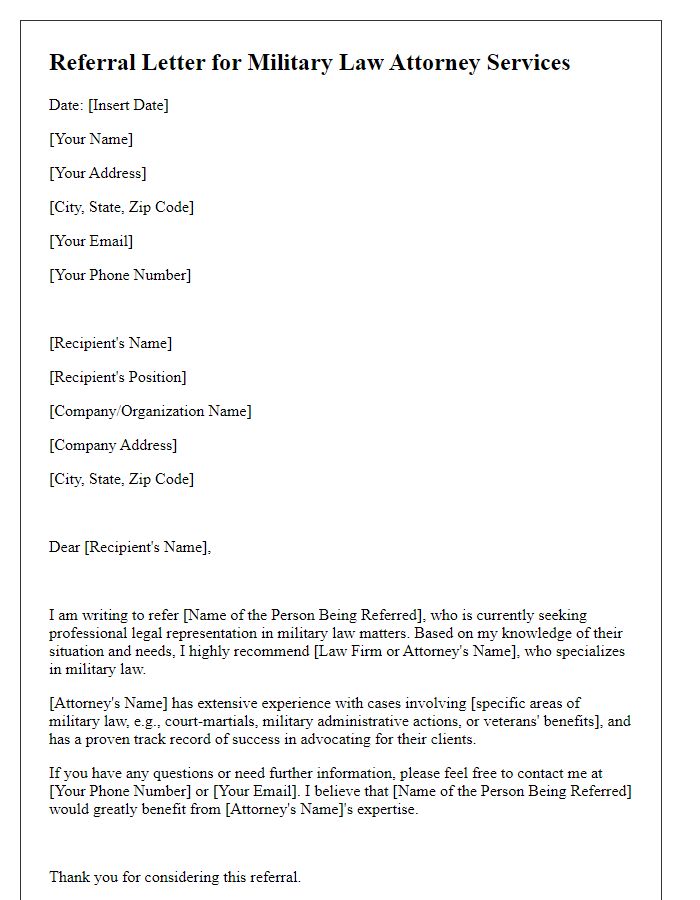
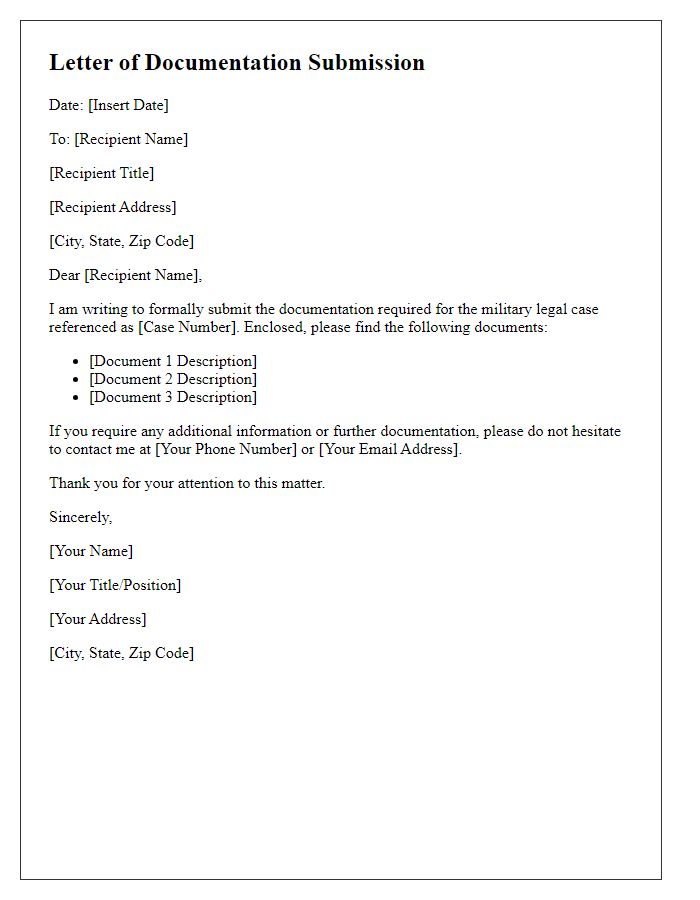
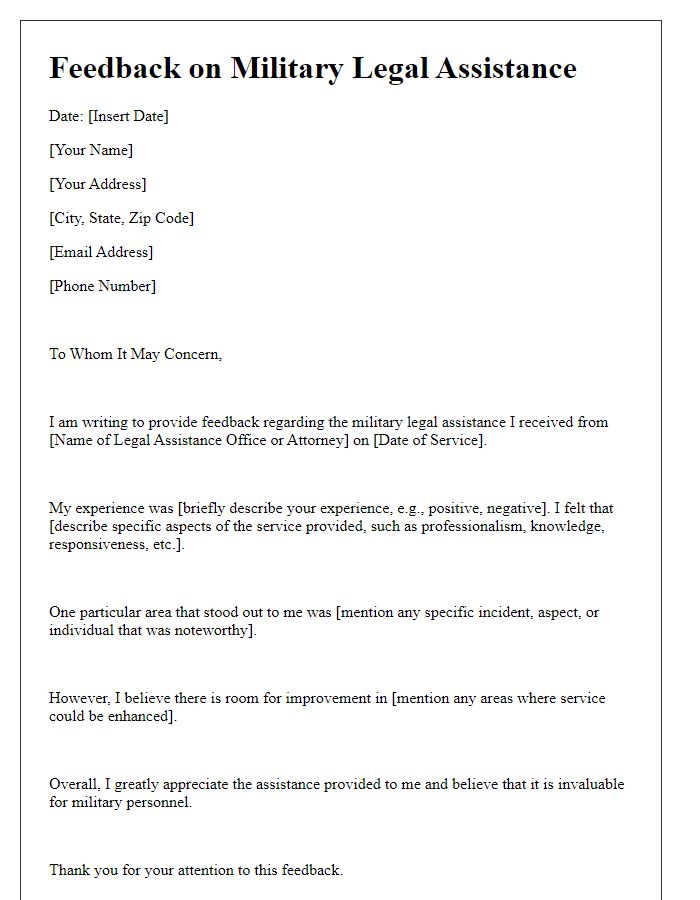


Comments